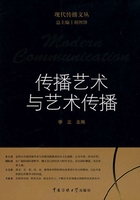If the 'iron law'held good,free trade in multiplying the labourers might only multiply the mass of misery.It might increase the aggregate wealth without raising the average welfare.The economical purists might reply that the poor would profit by the change on condition of also accepting the gospel according to Malthus.But the very name of Malthus stank in the nostrils of all Chartist leaders.
Another agitation gave special importance to this view.The credit which accrued to political economists from free trade was affected by their responsibility for the new poor-law.The passage of this measure in 1834might be taken as a victory not merely of the economists in general,but specifically of the hated Malthus.He and his followers had denounced the old system most effectually,and had denounced it in the name of his principles.To Malthus and to Ricardo the only remedy seemed to be the ultimate abolition of the poor-laws.Their disciples were prominent in carrying the new law.Nassau Senior (already mentioned)had resolved when a young man to reform the poor-laws.
He had lectured in 1828on the Principles of Population as an adherent (with some modification)of Malthus.As an early member of the Political Economy Club he was at the very focus of sound doctrine.He was an active member of the commission of 1832,and is said to have drawn up the famous report upon which the new measure was founded.(11)The measure itself hid therefore the highest credentials that strict political economists could desire.Brougham as Lord Chancellor helped Miss Martineau,a most orthodox adherent of the school,and a personal friend of Malthus,to prepare the public mind by a continuation of her Tales.
The new poor-law,though placed to the credit of Malthusians,was by no means a pure and simple application of the Malthus theory.The gross abuses,rate-aided wages,and so forth,were suppressed in accordance with his views;but the complete abolition of the poor-law,to which he had looked forward,was out of the question.The position was already critical.An experienced magistrate told the commission(12)that if the system went on for another ten years 'a fearful and bloody contest must ensue.'A generation of superfluous labourers,he said,had grown up demanding support.To maintain the system was dangerous,but simply to abolish it was to provoke a social war.
The alternative was a cautious and gradual remodelling of the system;and the transmutation of a demoralising into a disciplinary system.This meant so great a deviation from the extreme proposals that it might even tend to perpetuate the system by removing its abuses.Many of the evils resulted from the very fact which,in the eyes of Ricardo,was its chief palliation --the obligation of each parish to keep its own paupers.It had produced not economy but chaos.The commission recommend that the power of making regulations,now exercised 'by upwards of fifteen thousand unskilled and (practically)irresponsible authorities liable to be biased by sinister interests'(Bentham's sacred phrase)should,now be confided to the central board of control,on which responsibility is most strongly concentrated,and which will have the most extensive information.'(13)The competition between the parishes had produced the tangled laws of settlement,leading to endless litigation:the depopulation of some places,the overcrowding of others,the peculations and jobbery due to the 'sinister interests'of petty local authorities,and the utter absence of any uniform or rational system.To compel the fifteen thousand bodies to substitute co-operation for competition,to check their accounts,and to enforce general rules,it was necessary to create a central board with wide administrative authority.For such a scheme,now obvious enough,the commissioners found their only precedent in a measure by which a barrister had been appointed to inspect savings banks and friendly societies.(14)The new poor-law was thus a 'centralising'measure,and marked a most important step in that direction.It was denounced for that reason on both sides,and among the orthodox economists by M'Culloch.J.S.Mill defended it warmly against this 'irrational clamour';and but for certain restraining influences,especially the teaching of Tocqueville,would he thinks have gone into the opposite excess.(15)It seems,however,that the Utilitarians generally accepted the law as a judicious application of Malthus,tempered by proper regard for circumstances.They were indeed bound in principle to be shy of the direct application of a priori formula.Yet it may also be briefly noted that this was one of the cases on which the Utilitarians unconsciously forwarded a tendency to which they objected in general terms.They wished to codify and simplify the poor-law,and found it necessary to introduce a central regulating body.Though they meant to stimulate local activity,they were calling the central authority into fresh activity.















